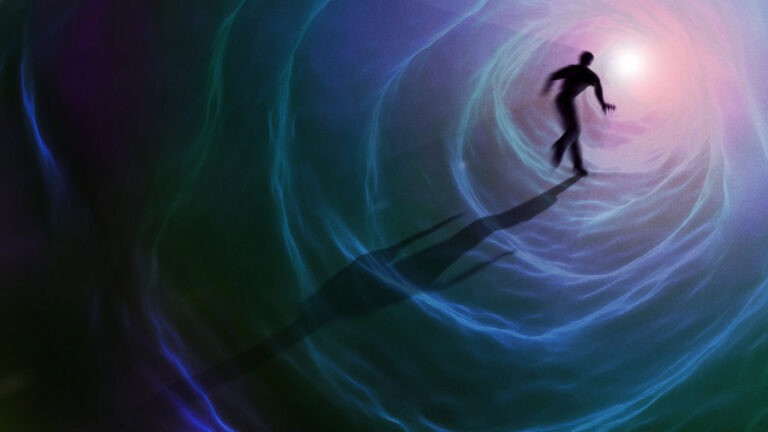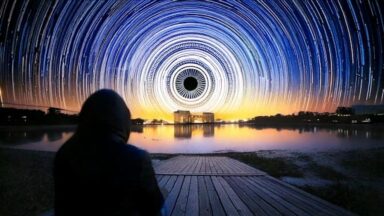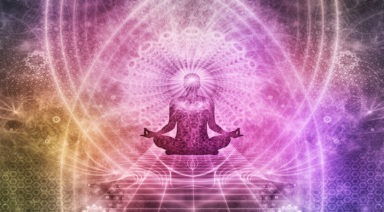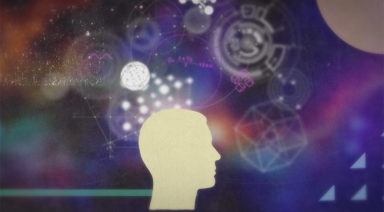These Near-Death Experiences Describe Direct Experiences With God

What do near-death experiences suggest about the ultimate source of reality, spirituality, and what many call “God?” Psychiatrist Raymond Moody explains the answer to this question in his latest book “God Is Bigger Than the Bible.”
Dr. Raymond Moody has spent more than four decades studying the afterlife. In his 1975 book “Life After Life” he first presented his research on the “near-death experience” or NDE, the transcendent experience of death that radically transforms the life of the person who lives to tell about it. In his new book, Dr. Moody presents his thoughts on God, drawn from the accounts of the thousands of people he has interviewed about their near-death experiences.
“You know, when I was a kid I didn’t think about God. I can’t say I was an atheist because I never really thought about God,” Dr. Moody said. “Then I went to college and got interested in these near-death experiences through Plato, and subsequently have heard of thousands of these from people all over the world who have this same kind of experience—many of them have conversations with God. So that is how I came to God, you know God has become just a big part of my life in the last few decades.”
Dr. Moody’s motivation for writing his latest book is to provide readers with an understanding of God, or source, that is entirely outside the realm of organized religion. To Dr. Moody, idealized religion can present a fearsome image of God that has scared many away from developing a personal relationship with the divine.
“Well, before I started hearing of people with near-death experiences, my notion of God was that people had this imaginary figure who was watching their every step with a little book, trying to see if they’re going to stumble or something,” Dr. Moody said. “But when I started hearing these people with near-death experiences it was a whole different take on God. People say that when they had their cardiac arrest or whatever, that they left their bodies and dissolved into this light, almost. People say that whatever kind of love that you have experienced while you’re alive, that is just beyond description. You go through a passageway to this light of complete comfort, peace, and love, you feel sort of wrapped up in it.”
A common component of the NDE is what is known as the “life review.”
“People say they’re surrounded by a holographic panorama consisting of everything they’ve ever done, and they witness it from the point of view of the other people they’ve interacted with. And all of this is being experienced in the presence of a being of complete compassion and love, who sees all those things they’ve done there, but there’s no judgment coming from this—that this being is helping you evaluate these things. They say that there are no words but that the thought comes through. The question that comes from this being is ‘how have you learned to love?’ People learn a lot about themselves from these encounters with God,” Dr. Moody said.
Through his research, both with near-death experiencers and the elderly, Dr. Moody has come to an understanding of God as the writer of our life stories.
“What is your life but your story? Your whole consciousness is geared to create a story. As soon as some new event happens in your life, your mind immediately starts to weave it into your life story. What this life has to do with is our stories, and we go through one story and then we go through some sort of incomprehensible process, and then we come back on another storyline. To what degree God helps us choose the plot, I don’t know. My guess would be is that there would be some kind of advice process, that’s the sense I get,” Dr. Moody said.
After decades of research, Dr. Moody feels like there is now a growing shift in understandings of the afterlife.
“We are beginning to understand, I think better, what it might mean to say that our consciousness can go on even after we die. The world is about to open up, we will have whole new ways of addressing the question of the afterlife. You know, people say that in their near-death experiences, when they get over to the other side, that God is much more accessible there. And my question is if we get closer to a rational comprehension of life after death, will that bring us closer to God? When people begin to comprehend the whole notion of an afterlife with entirely new systems of thinking then that will open them up more to personal contact with God,” Dr. Moody said.
And for Dr. Moody, it is that personal contact that makes all the difference.
Are White Holes Real And Can They Connect to Parallel Universes?

What Are White Holes?
When Stephen Hawking proposed the idea that a black hole will eventually evaporate by leaking radiation from its event horizon, there was a problem. If it evaporates, what happens to all of the information it sucked in? If quantum theory is correct, this would defy a fundamental law that information cannot be lost – it’s called the no-hiding theorem.
With the no-hiding theorem, if information is missing from one system, then it must simply be residing somewhere else in the universe – a cosmic game of hide-and-seek. So theoretically, if information is getting sucked in, it must be getting spat back out somewhere, and likely that’s through a white hole. But is it really possible that white holes exist?
One way to conceptualize this in a very basic mathematical sense is to think about the square root of 9. The answer is both 3 and -3. This is fundamentally part of what’s known as Schwarzchild geometry, the formulae used in general relativity to describe the gravitational field outside a spherical mass.
Just like the color black is the opposite of white, the white hole is the opposite of a black hole in every way. Light cannot escape a black hole, so light cannot enter a white hole. This would obviously make a white hole incredibly bright, and some quantum physicists believe that maybe some of the light in the universe we thought was coming from supernovae, may actually be from white holes.

Physicists also believe this concept could be germane when talking about the big bang and how our universe came into existence. They believe it’s possible that at the moment of creation, everything was expelled from a massive white hole on an incredibly large scale.
The premise of white holes is based on a theory positing that space-time is made of granular building blocks that can be quantified. This quantification comes in the form of loops, almost like little threads that are of a finite size – so finite they cannot be subdivided any further. To a viewer these loops would be make space-time appear to be smooth and continuous, but their granular nature would prevent highly dense bodies like neutron stars from collapsing into a point of infinite density.
So, in the case of black holes, these incredibly finite loops would prevent a collapse into infinity, but eventually the loops would only be able to compress to a certain point, until they exert an outward pressure, almost like a spring. This is referred to as quantum bounce, a rebound from a black hole ingesting everything into a white hole expelling everything.
Many argue, however, that white holes are theoretically impossible because they violate the second law of thermodynamics, stating that entropy cannot decrease in a system. But it depends on how one looks at entropy, with some physicists saying it refers to disorder, while others say it refers to information used to describe a system, and an argument over semantics ensues.
White Holes and Wormholes
So, if a black hole is sucking in all of this information and a white hole is spitting it out somewhere, mustn’t there be something connecting the two? A wormhole perhaps? Maybe.
The aforementioned Schwarzchild geometry implies that a wormhole would connect a black hole and white hole with two distinct universes connected at their horizons, also known as an Einstein-Rosen bridge.

Unforunately, these wormholes would be highly unstable if they were even possible. It would also be impossible, with physics as we know it, for one to pass through a wormhole into another universe (also theoretical) due to a number of pesky things like being spaghettified when passing through a black hole’s event horizon before being compressed at the singularity. Though you might at least get to see some distorted light from the parallel universe on the other side.
But since this is mostly theoretical, there are always theoretical solutions, like using exotic matter to stabilize a wormhole. Exotic matter has negative mass and positive surface pressure. This would keep the throat of the wormhole stable, while also preventing it from collapsing. This could hypothetically allow for travelers to pass through.
Will we ever figure out if wormholes exist and whether they can be used for time travel or inter-dimensional travel? Or have we already?
Five Things You Didn’t Know About White Holes
- Scientists believe they may have witnessed a white hole when a sudden burst of white light appeared out of nowhere and then vanished. Unfortunately, there haven’t really been any other similar events recorded to study.
- In The Hitchhiker’s Guide to the Galaxy the people from the planet Magrathea create luxury planets for the galaxy’s richest people from the matter retrieved from white holes.
- Some have theorized that instead of a wormhole connecting two points in space, it could connect two points in time. This connection between a black hole and a white hole could potentially allow for time travel if one could stabilize said wormhole.
- White holes are essentially time-reversed black holes containing a singularity existing in the past.
- In the ‘70s, Stephen Hawking said black and white holes absorb and emit the same amount of radiation when they are in thermal equilibrium, making them indistinguishable. According to physicist Stephen Hsu, when a white hole is in isolation surrounded by empty vacuum space, it’s not in equilibrium, meaning it has nothing to absorb. This forces it to explode and release a large amount of thermal energy – what Hsu calls ‘quasithermal energy.’




































